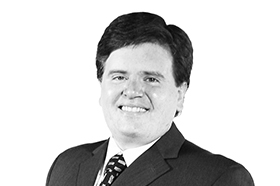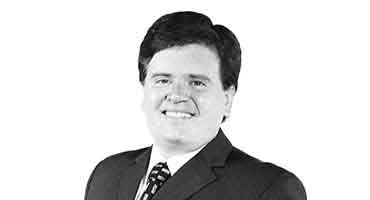On Feb. 28, 2023, the U.S. Supreme Court issued a decision in Delaware v. Pennsylvania1 holding that teller’s checks and agent checks offered by MoneyGram Payment Systems, Inc. (MoneyGram) were similar enough to money orders to be governed by a federal law that directs to which state abandoned money orders and similar written instruments are reported. Specifically, the Court ruled that MoneyGram’s agent and teller’s checks should be escheated to the states where purchased as directed by the federal statutory rule, instead of to Delaware, the state where MoneyGram is incorporated.
Background
The consolidated cases of Delaware v. Pennsylvania and Arkansas v. Delaware — commonly known as the MoneyGram case — involve a long-standing dispute between Delaware and 30 other states over the application of escheat rules to approximately $250 million in uncashed agent checks and teller’s checks issued by MoneyGram.2 For years, MoneyGram escheated funds received for uncashed checks to Delaware under common law principles established by the Court in the 1965 case of Texas v. New Jersey.3 In that case, the Court held that if the last known address of the owner of the property is unknown, the unclaimed property is escheated to the holder’s state of incorporation. Since MoneyGram and many large corporations are incorporated in Delaware, this rule provides Delaware with a very significant amount of escheated funds, which over time has enabled Delaware to rely on this revenue stream as a reliable component of its overall budget.
Delaware argued that the MoneyGram checks are third-party bank checks and therefore should be governed by the common law escheatment rules established by the Court. In contrast, the challenging states argued that the checks are money orders or “similar written instruments,” therefore coming under the jurisdiction of a nearly 50-year-old federal law known as the federal Disposition of Abandoned Money Orders and Traveler’s Checks Act of 1974 (FDA).4 If the FDA applies to the instruments at issue, the funds escheat to the state where the purchase occurred.5
In a case of original jurisdiction first coming before the Court in 2016, the Court initially appointed a special master, a judge sitting on the U.S. Court of Appeals for the Second Circuit, to hear oral arguments from the parties and provide recommendations to the Court on how it should rule. In 2021, the special master issued a first interim report agreeing with the 30 states, determining that both MoneyGram’s agent checks and teller’s checks fell within the scope of the FDA, meaning that they should revert to the state where purchased. The Court agreed to hear oral arguments in the case after Delaware submitted exceptions to the special master’s report and requested that the Court reject his recommendations.
Interestingly, after hearing oral arguments and reviewing the record, the special master issued a second interim report partially reversing his opinion. In his revised opinion, the special master concluded that while the agent checks should be governed by the FDA and escheat to the state where purchased, the teller’s checks should fall within the FDA’s exclusion for third-party bank checks and therefore escheat to Delaware.
U.S. Supreme Court decision
In a 9-0 opinion authored by Justice Ketanji Brown Jackson, the Court held that the MoneyGram agent checks and teller’s checks are “sufficiently similar” to money orders such that they fall under the jurisdiction of the FDA, concluding that the checks were improperly escheated to Delaware. In doing so, the Court declined to specifically define the term “money order” or decide whether the MoneyGram checks are in fact money orders. In the Court’s view, a finding that the disputed instruments are similar to money orders is sufficient for the instruments to escheat under the FDA.
Finding that the checks in question shared two relevant similarities with money orders, the Court established a two-pronged test to determine whether an instrument is covered by the FDA. First, the Court found that the checks are similar to money orders in function and operation, because they are prepaid written instruments used to transmit a specified amount of money to a named payee. Noting that Delaware did not dispute that the MoneyGram checks are prepaid written instruments, the Court held that “the FDA naturally applies to prepaid instruments, such as money orders, given that those instruments are of a type likely to implicate the FDA’s escheatment rules.”
Second, the Court determined that the checks would inequitably escheat to the holder’s state of incorporation under the federal common law’s secondary escheatment rule due to the business practices of the company holding the funds. The Court noted that companies like MoneyGram generally do not retain owner addresses as a matter of their business practices. Therefore, the secondary escheatment rule under Texas v. New Jersey would not apply. In its analysis, the Court explained that Congress enacted the FDA to prevent inequitable escheatment, especially the type that creates a large windfall to the state of the holder’s incorporation, by instead adopting a place-of-purchase rule that distributes escheated funds equitably across the states where the checks are purchased.
Next, the Court rejected Delaware’s contention that the disputed instruments fall within the FDA’s third-party bank check exception simply because the disputed instruments are signed by bank employees and paid through MoneyGram. In the Court’s view, Delaware could not point to any definition of a money order that included such attributes. The Court likewise rejected Delaware’s argument that the FDA was concerned with dissuading states from adopting costly recordkeeping requirements that would be passed onto consumers, finding that this argument was not supported by the text of the FDA.
Finally, the Court rejected Delaware’s argument that the disputed checks are third-party bank checks, an argument that was also adopted by the special master in his second interim report. Specifically, the Court noted that the phrase is not specifically defined in the FDA and does not have a commonly accepted meaning. The Court reasoned that the special master’s analysis did not explain why the FDA would use the term to exclude specific financial instruments that were well known when the law was enacted and failed to account for the nature of the disputed checks. Accordingly, the Court adopted the special master’s first interim report but declined to adopt the second interim report, stating that all the checks in question were covered by the FDA. However, the Court made clear that it was not opining on whether the FDA applies to other types of checks such as cashier’s checks, certified checks and non-MoneyGram teller’s checks, because those instruments were not present in this case.
Commentary
In the first unclaimed property case to come before the Court in approximately 30 years, the MoneyGram decision represents a victory for the 30 states, which may now take custody of the abandoned MoneyGram checks and provides additional clarity for issuers of instruments that are substantially similar to the checks reviewed in this case.
Importantly, however, because the Court limited the scope of its decision to apply to MoneyGram’s agent and teller’s checks only, it remains to be seen whether the holdings of the decision are applied to other financial instruments. With respect to this litigation, the Court remanded the case to the special master for the damages phase to engage in the complex task of determining how the unclaimed checks will be divided amongst the 30 states.
The Court established a two-part test to determine whether an instrument is sufficiently similar to a money order and therefore fall under the FDA’s escheatment rules. The second prong of this test is noteworthy because it looks not just to the nature and substance of the instrument itself, but also to the holder’s address collection policies, which departs from the common law rules established in Texas v. New Jersey. Generally, the Court’s analysis takes a broad view of the FDA, recognizing that Congress enacted the law to make escheat more equitable and to avoid providing an undue windfall to the holder’s state of incorporation. At the same time, the equitable escheatment theory advanced by the Court adds another layer of uncertainty to escheat determinations, since it moves further away from the common law bright-line test establishing that property went to the state of incorporation if the last known address of the owner is unknown.
Notably, the Court declined to address how the common law rules announced in Texas v. New Jersey would play a part in escheatment determinations going forward. Pennsylvania, one of the parties to the litigation, requested that the Court consider the question of whether Texas v. New Jersey is still proper law. While the Court ultimately refused Pennsylvania’s request because it considered the issue moot, the Court’s opinion acknowledges that unfair escheatment outcomes may result from Texas v. New Jersey, stating that such rules “were permitting inequitable escheatment and … the [FDA] details the inequitable escheatment problem.” That being the case, it is unclear how the Court would address the viability of the common law escheatment rules if directly asked to do so.
Based on the broad principles announced by the Court in favor of the equitable distribution of unclaimed funds among the states, the MoneyGram ruling potentially sets the stage for further disputes between states and holders of property in asserting that particular instruments should be reported under the FDA instead of common law rules. In particular, the decision raises the question of what types of scenarios will be deemed inequitable where the holder of unclaimed funds does not collect owner address information. It is possible that states may now use the decision to formally issue administrative guidance and take positions in unclaimed property audits that would allow them to recover certain property types from Delaware or other states of incorporation where property holders have historically been escheating property under the common law rules. Alternatively, states may propose and enact statutory provisions that would provide for stricter escheatment policies and procedures. One example would be provisions requiring holders to collect and maintain owner address information for certain property types, in which case certain instruments may fall outside the scope of the FDA.
Given the new principles announced by the Court in the MoneyGram case, issuers of similar types of property that historically have not required the retention of owners’ addresses should consider the effects of the Court’s decision and whether such property should now be reported under the FDA rules as opposed to the common law rules. Such holders should engage in a detailed analysis of whether and how their address collection and retention practices relate to these property types.
1 Delaware v. Pennsylvania et al.; Arkansas et al. v. Delaware, Nos. 22O145 & 220146, U.S. Supreme Court, Feb. 28, 2023.
2 When such checks remain uncashed or undeposited after a specified dormancy period, they become classified as abandoned property, meaning that a state may take custody of such property is located within its borders in accordance with the state’s unclaimed property laws.
3 379 U.S. 674 (1965).
4 12 U.S.C. § 2501-03.
5 12 U.S.C. § 2503.
Contacts:
Tax professional standards statement
This content supports Grant Thornton LLP’s marketing of professional services and is not written tax advice directed at the particular facts and circumstances of any person. If you are interested in the topics presented herein, we encourage you to contact us or an independent tax professional to discuss their potential application to your particular situation. Nothing herein shall be construed as imposing a limitation on any person from disclosing the tax treatment or tax structure of any matter addressed herein. To the extent this content may be considered to contain written tax advice, any written advice contained in, forwarded with or attached to this content is not intended by Grant Thornton LLP to be used, and cannot be used, by any person for the purpose of avoiding penalties that may be imposed under the Internal Revenue Code.
The information contained herein is general in nature and is based on authorities that are subject to change. It is not, and should not be construed as, accounting, legal or tax advice provided by Grant Thornton LLP to the reader. This material may not be applicable to, or suitable for, the reader’s specific circumstances or needs and may require consideration of tax and nontax factors not described herein. Contact Grant Thornton LLP or other tax professionals prior to taking any action based upon this information. Changes in tax laws or other factors could affect, on a prospective or retroactive basis, the information contained herein; Grant Thornton LLP assumes no obligation to inform the reader of any such changes. All references to “§,” “Sec.,” or “§” refer to the Internal Revenue Code of 1986, as amended.
More SALT alerts

No Results Found. Please search again using different keywords and/or filters.












Share with your network
Share